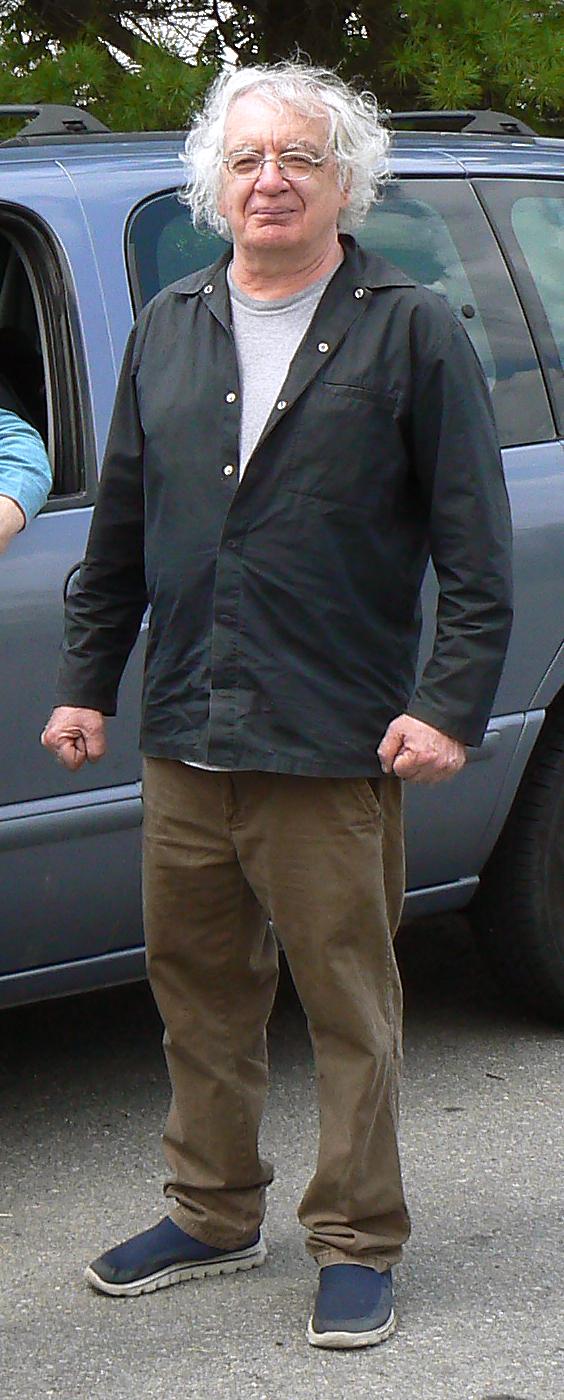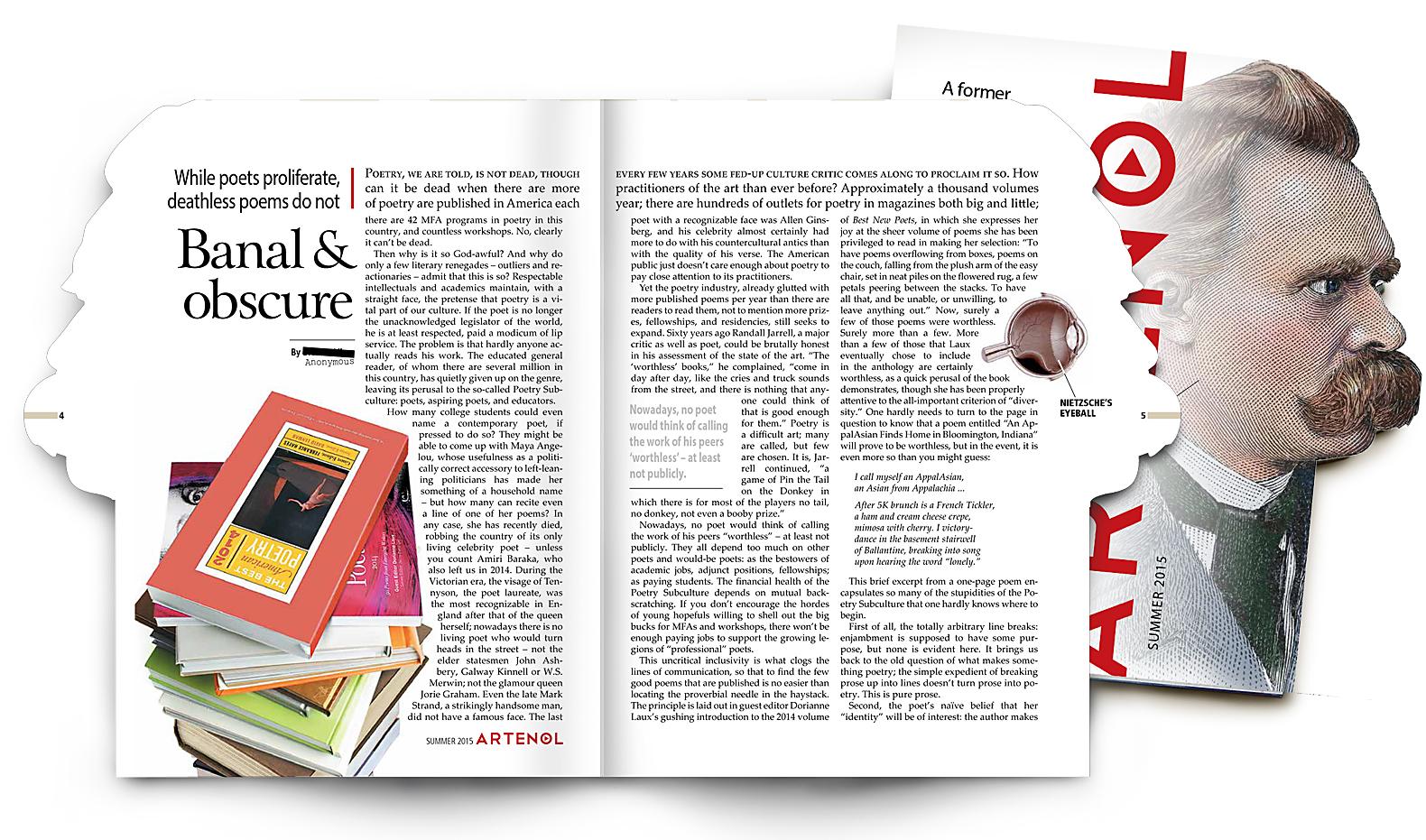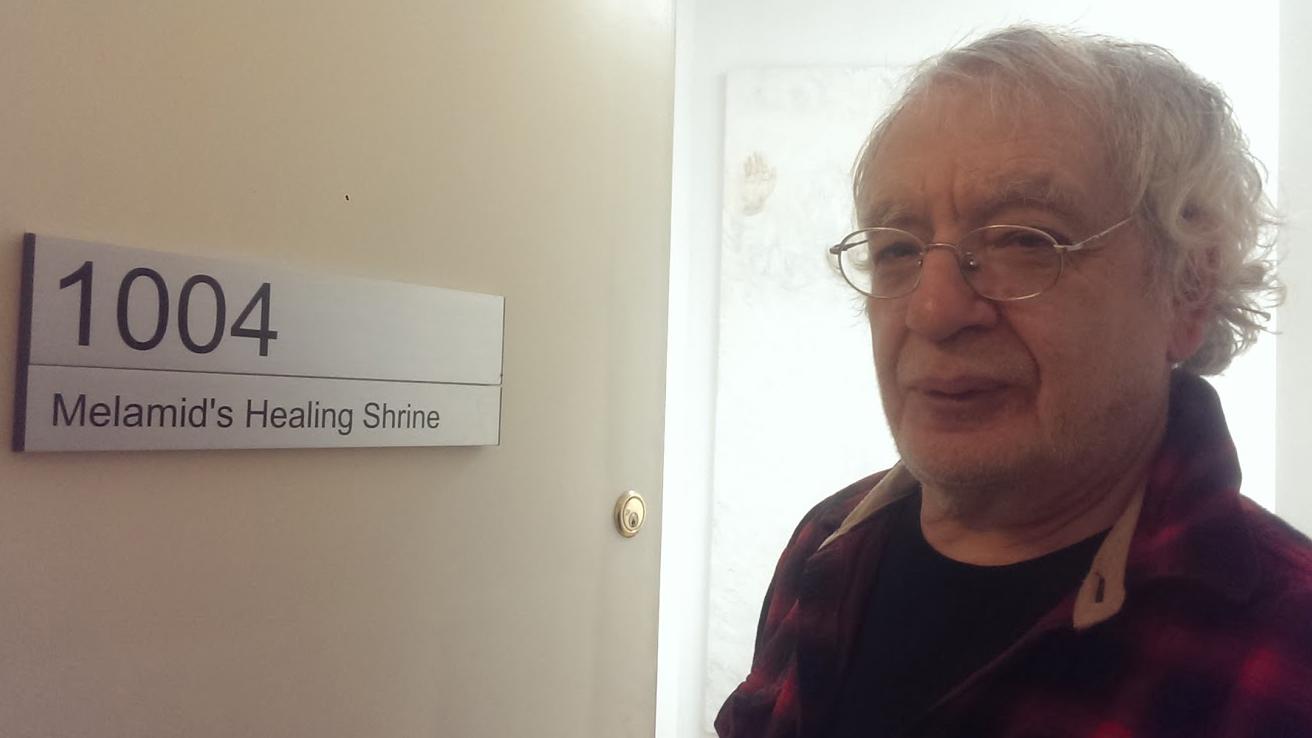Alexander Melamid
When I caught up with Alex Melamid, he was preparing to give a lecture on “de-artification.” The point was to persuade art students not to be, well, art students.
“Plumbers, on average, make much better money than average artist. Of course, there is no hope and no illusion that you can get on top and make millions of dollars,” Melamid says.
I get Melamid’s logic — no one’s going to argue an artist is guaranteed a steady income — but isn’t it kind of, I don’t know, mean-spirited to dissuade the young and idealistic from taking the same path? Especially when he’s had a successful career.
“I am a successful artist, that’s true,” he says, laughing. “I am like a priest who at some point said, maybe God doesn’t exist, eh? Maybe I served all my life in this goddamned church and wasted my life for doing nothing.”
Maybe. But when you’re dealing with a professional provocateur, it becomes hard to tell reality from conviction. Back in the Soviet Union, Melamid and his partner, Vitaly Komar, pioneered a genre called “Sots Art,” a send-up of the socialist art favored by the Communist Party. Instead of, say, a painting of women picking wheat as Stalin looks benevolently on, you’d see women picking wheat with Melamid looking benevolently on.

Punking the Soviet art world made Komar and Melamid famous; today these paintings sell for millions in Russia. But in the late 70s, their satiric art made them persona non grata in the eyes of the government.
Melamid and his family left Russia around that time, but his legacy has proven to be something of a double edged sword.
“People say, ‘you're a Russian artist,” he says. “I left Russia 35, 40 years ago. I'm not claiming I'm an American artist, but what is a Russian artist? I mean, what does it mean?”
One thing that hasn’t changed: Melamid is still fearless when it comes to tackling the taboo, the sacred or just the plain impossible. And he’s never stopped punking the art world. He’s deep-fried portraits of 20th century icons like Pablo Picasso.
And he went to Thailand — to teach elephants to paint.
“Now we have hundreds of elephants painting, if not thousands,” he says.
I know this sounds like another of Melamid’s art pranks, but he is totally serious. He and Komar opened the first elephant art academy in Thailand in 1998 after thousands of elephants employed by the logging industry were left starving in the wake of a logging ban. The solution? Turn elephants into artists.
And if you still think Melamid is kidding, their first auction of elephant paintings at Christie’s netted $75,000, money that went to preservation efforts.
Is it absurd to think that elephants can be painters? Sure. But Melamid’s career can be described as a catalog of absurd ideas, rigorously executed. And that brings us to his latest endeavor, a magazine about art called Artenol.
“Which is like Tylenol. It's good for your health, I suppose,” Melamid says.
What disease is Artenol supposed to cure, exactly? Maybe insider-itis.
“Art, of course, pretends that it exists for people,” he says. “So if it is true, let people speak. I'm trying to find some people who are … not connected to art.”
The non-artists and non-critics he’s recruited to write about art include an auto mechanic, a priest, and a lawyer representing Wikileaks founder Julian Assange.
A lot of these art-outsiders are milling around when I arrive at the opening party for Artenol, but there’s one thing missing: the magazine. Melamid hired a Chinese children’s book publisher to print Artenol — which is die-cut in the shape of German philosopher Friedrich Nietzsche’s head, of course — but the shipment’s been delayed. Melamid claims it’s because US customs is looking it over for “subversive materials.”

I can’t help but comment that given his love of irony — and publicity — getting the first issue of his new magazine confiscated by the US government might be the best possible thing that could happen.
“Of course, yeah. I am used to this from my days in Russia,” he says, laughing. “Maybe I’ll get lucky again.”
Every day, reporters and producers at The World are hard at work bringing you human-centered news from across the globe. But we can’t do it without you. We need your support to ensure we can continue this work for another year.
Make a gift today, and you’ll help us unlock a matching gift of $67,000!
